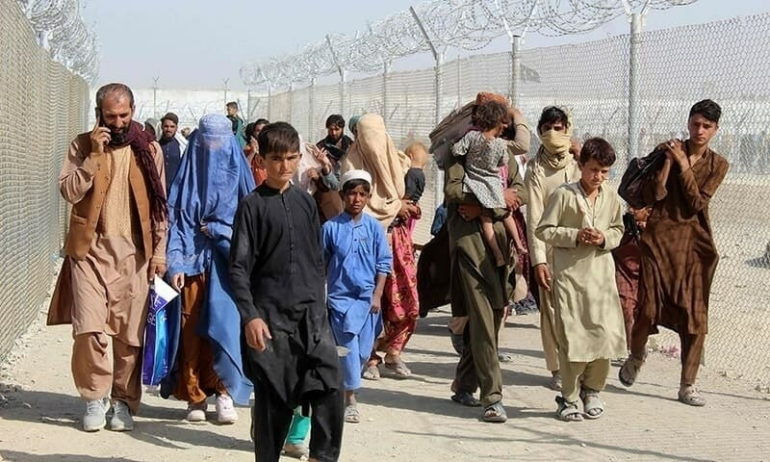The Human Rights Commission of Pakistan (HRCP) on Tuesday urged UN High Commissioner for Refugees to ask the Government of Pakistan to immediately extend the 1 November deadline set for the voluntary return of all the illegal foreigners.
The HRCP also requested the UN Commissioner to ensure that no migrants, refugees or asylum seekers with legitimate documentation were expelled without just cause.
In a letter addressed to UN High Commissioner for Refugees, UN Secretary-General and UN High Commissioner for Human Rights, the HRCP expressed great concern over the Pakistan government’s decision to expel all undocumented foreigners, a bulk of which comprised of Afghan nationals, by 1 November 2023.
The HRCP said the decision—which would apply to an estimated 1.7 million Afghans—could trigger a “humanitarian crisis”.
“The decision amounts to forced repatriation, which is not recognised under international customary law, and will invariably affect vulnerable refugees and asylum seekers, which include women, children, the elderly, persons living with disabilities, persons from low-income groups, and Afghans at risk because of their professions—many of whom fled Afghanistan after the Afghan Taliban took over the government in August 2021,” the letter read.
The human rights body said despite drawing criticism from human rights organisations and networks, the government had shown no signs of reconsidering the decision, “having gone so far as to prevent prominent members of civil society from expressing their views on this matter at public events”.
“The interior minister Sarfraz Bugti has also made it clear that this phase will be followed by the deportation of foreigners with legitimate documents, including Afghans with proof-of-residence cards,” the HRCP said while citing media reports indicating that 77 Afghan refugees with legitimate documents had already been deported from Khyber Pakhtunkhwa ahead of the 1 November deadline.
Additionally, the HRCP said it had received “worrying reports of Afghan refugees having been harassed, intimidated, extorted and arrested by law enforcement personnel, following the government’s original announcement”.
“While HRCP recognises that the government may have legitimate security concerns tied to a small number of foreign nationals resident in the country illegally, we believe that humanitarian concerns must override security interests,” the HRCP remarked.
The body also raised concern about the use of such mandate by “an unelected caretaker government”. “We also believe that refugees and asylum seekers should be allowed to thrive along with their hosts and that the rights of both are not mutually exclusive.”
“Regrettably, Pakistan is not a signatory to the 1951 Refugees Convention, lacks a national asylum system and addresses issues related to Afghan refugees through ad hoc and discretionary policies,” it added.
He said the country was bound by the universally binding customary law of non-refoulement, which prohibited deporting anyone to a place where they would face a real risk of persecution, torture, ill treatment, or a threat to their life.
“This includes an obligation not to pressure individuals, including registered refugees, into returning to places where they face serious risk of such harm.”
The HRCP said it believed that the Pakistan government’s actions in this context amounted to “violations of international customary law, given that the prevailing circumstances in Afghanistan are not at all conducive to the safe return and reintegration of vulnerable refugees and asylum seekers”.



